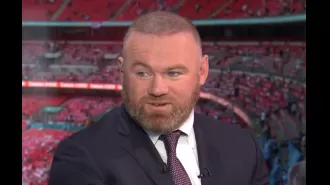I spoke with 11 incels and gained insight.
A 12-year-old I talked to became an incel.
December 18th 2024.

David Smith had a conversation with a man who joined the incel community at a young age of 12. The man, who goes by the name Harta, shared his story with David from his home in America. Although Harta chose to keep his webcam turned off, his voice was filled with nervousness but also a sense of relief to finally have someone listen to him. He admitted that when he first joined the incel community, he was taken aback by some of the posts which suggested that having sex with one's own sister is acceptable. Harta quickly clarified that he was turned off by such ideas and did not share the same belief.
Harta, now in his late twenties, used to be a part of the incel community during his early twenties. Involuntary celibates, or incels, are a group of men who feel that they have been rejected by society due to their genetics and modern feminism. As a psychologist and lecturer at Robert Gordon University, David found the incel culture both intriguing and concerning as it revolves around feelings of inferiority. While it is not uncommon for some individuals to go long periods without any sexual encounters, incels make it a core part of their identity. David admits that he can relate to the fears and anxieties that incels have as he too, as a teenager, worried about being the only one who wasn't having sex and feared being alone for the rest of his life. He believes that social media influencers and dating apps have only amplified these insecurities, making it easier for people to experience rejection.
Driven by curiosity, David placed ads on ex-incel groups to find people who were willing to share their experiences. To his surprise, 11 people signed up. Initially, David was worried about how comfortable these men would be in speaking about something as personal as their sex lives with a stranger. However, it turned out to be a cathartic experience for them as most of them had never spoken so openly about their online lives before. Harta, for instance, has been a part of the incel community for five years but has never disclosed it to his friends or family due to the negative reputation associated with it.
It may come as a surprise, but the first incel website was founded by a woman in 1997. Alana's Involuntary Celibacy Project aimed to bring together individuals from all around the world, including men, women, and trans people, to discuss shyness. However, over time, the focus shifted towards trying to understand why they were not having sex. This led to a blame game where men started accusing women for their celibacy. Today, most incels are followers of the "red pill" ideology, taken from the movie The Matrix, where they believe that feminism has disrupted the natural sexual economy. They argue that women only date the most masculine men, leaving the rest of them at a disadvantage.
Content creator Andrew Tate has been accused of exploiting the insecurities of young men who are desperate to win at a game that is already rigged against them. To these men, Andrew represents the epitome of masculinity, and they aspire to be like him. However, despite being called an incel in parliament, most incels believe that Andrew is nothing more than a scam artist. They see him as someone who effortlessly embodies the qualities they could never achieve, no matter how hard they try. This sense of failure and being rejected by society brings incels together, as Aaron, an ex-incel from the UK, puts it, "the weird kids must form their own collectives because they have been outcast."
While surveys suggest that the majority of incels are between 18 and 30 years old, David spoke to one individual who joined the community at the tender age of 12. He had always felt ugly and saw the incel forums as a safe space where he could discuss his insecurities without being told that he was fine. As he grew older, he saw the men in their mid-twenties as teachers who could educate him on things that he found more interesting than Math, such as understanding the real world.
Contrary to popular belief, incels are a diverse group, with only 55% being white. Most of them come from underprivileged backgrounds, with half of them living with their parents or caregivers. Twenty percent of them are not in education, employment, or training. Aaron shares that he used to believe in the saying "work hard, be a good person and good things will happen," but being a part of the incel community made him realize that there are no guarantees in life.
David Smith had a conversation with a man who had joined the incel community at a very young age of 12. Harta*, who currently resides in America, shared his experience with me. He was hesitant to turn on his webcam, just like the other men I had spoken to for my research on the world of incels.
Despite his nervousness, Harta seemed grateful to have someone to listen to him. He went on to tell me about his first encounter with the incel community, where he came across a post that stated, "if my sister truly cared about my issues, she would let me have sex with her." This immediately turned him off and he quickly added that he was not in agreement with such thoughts.
Harta used to be a part of the incel community in his early twenties, but he has now distanced himself from it. Incels, short for involuntary celibates, believe that their bad genes and modern feminism are the reasons for their lack of romantic and sexual relationships. As a psychologist and lecturer, I find this subculture both intriguing and concerning, as it revolves around feelings of inferiority.
It is not uncommon for men to go years without having any sexual encounters, but what sets incels apart is that they make it a core part of their identity. I can understand why some of them may feel this way, as I too had similar worries during my teenage years. The constant pressure from social media influencers and the availability of dating apps only amplifies these concerns, making it easy for people to face rejection with just a swipe.
This is what inspired me to interview former incels and understand their reasons for joining this community, and how we can help others leave it. I placed ads on dedicated ex-incel groups and was surprised to see 11 people signing up to speak with me. I was initially worried about how these men, who were complete strangers, would open up to me about something as personal as their sex lives. But to my relief, it seemed to be a cathartic experience for them, as most of them had never spoken about their digital life before.
One of the men I spoke to, Harta, who is now approaching 30, confessed that he has never told his friends or family about his involvement with incels for the past five years. He believes that the group has a negative reputation, and he does not want to be associated with it.
Interestingly, the first incel website was founded by a woman in 1997. Alana's Involuntary Celibacy Project aimed to bring together people from different backgrounds to discuss shyness. However, over time, the focus shifted to finding the reasons for their celibacy. The men in the community started blaming women, and today, most incels believe in the "red pill" theory. This refers to the scene in The Matrix, where the character takes a red pill to see the world for what it truly is. In the incel context, it means that feminism has created an unfair sexual market, where women only date the most masculine and leave the rest of the men sexually and socially disadvantaged.
Content creator Andrew Tate, who exploits the insecurities of young men by promising them ways to attract women, is seen as an aspirational figure by incels. However, despite being called an incel in parliament, most incels view him as a scam artist. They see him as someone who effortlessly embodies the masculinity that they could never achieve, no matter how hard they try. While Tate and his followers position themselves as winners in the dating market, incels have accepted their fate as the losers. It is this shared sense of failure that brings them together.
As I spoke to Aaron, an ex-incel from the UK, he shared his thoughts on the importance of collectives for those who have been outcast by society. He said, "the weird kids must form their own collectives because they have been outcast."
It is surprising to know that many incels join the community at a very young age. One of the men I spoke to joined at the age of 12, which is a shocking age to even be thinking about involuntary celibacy. He had always felt ugly and found solace in the forums, where he could discuss his insecurities without being told that he was fine. As he grew older, he saw the older men in the community as teachers who could educate him about things that mattered to him more than Maths - the real world.
Contrary to popular belief, incels are a diverse group, with only 55% being white. They tend to come from underprivileged backgrounds, with half of them living with their parents or caregivers, and 20% being out of education, employment, or training.
Aaron shared his belief that hard work and being a good person would lead to good things, but being a part of the incel community made him realize that there are no guarantees in life.
Harta, now in his late twenties, used to be a part of the incel community during his early twenties. Involuntary celibates, or incels, are a group of men who feel that they have been rejected by society due to their genetics and modern feminism. As a psychologist and lecturer at Robert Gordon University, David found the incel culture both intriguing and concerning as it revolves around feelings of inferiority. While it is not uncommon for some individuals to go long periods without any sexual encounters, incels make it a core part of their identity. David admits that he can relate to the fears and anxieties that incels have as he too, as a teenager, worried about being the only one who wasn't having sex and feared being alone for the rest of his life. He believes that social media influencers and dating apps have only amplified these insecurities, making it easier for people to experience rejection.
Driven by curiosity, David placed ads on ex-incel groups to find people who were willing to share their experiences. To his surprise, 11 people signed up. Initially, David was worried about how comfortable these men would be in speaking about something as personal as their sex lives with a stranger. However, it turned out to be a cathartic experience for them as most of them had never spoken so openly about their online lives before. Harta, for instance, has been a part of the incel community for five years but has never disclosed it to his friends or family due to the negative reputation associated with it.
It may come as a surprise, but the first incel website was founded by a woman in 1997. Alana's Involuntary Celibacy Project aimed to bring together individuals from all around the world, including men, women, and trans people, to discuss shyness. However, over time, the focus shifted towards trying to understand why they were not having sex. This led to a blame game where men started accusing women for their celibacy. Today, most incels are followers of the "red pill" ideology, taken from the movie The Matrix, where they believe that feminism has disrupted the natural sexual economy. They argue that women only date the most masculine men, leaving the rest of them at a disadvantage.
Content creator Andrew Tate has been accused of exploiting the insecurities of young men who are desperate to win at a game that is already rigged against them. To these men, Andrew represents the epitome of masculinity, and they aspire to be like him. However, despite being called an incel in parliament, most incels believe that Andrew is nothing more than a scam artist. They see him as someone who effortlessly embodies the qualities they could never achieve, no matter how hard they try. This sense of failure and being rejected by society brings incels together, as Aaron, an ex-incel from the UK, puts it, "the weird kids must form their own collectives because they have been outcast."
While surveys suggest that the majority of incels are between 18 and 30 years old, David spoke to one individual who joined the community at the tender age of 12. He had always felt ugly and saw the incel forums as a safe space where he could discuss his insecurities without being told that he was fine. As he grew older, he saw the men in their mid-twenties as teachers who could educate him on things that he found more interesting than Math, such as understanding the real world.
Contrary to popular belief, incels are a diverse group, with only 55% being white. Most of them come from underprivileged backgrounds, with half of them living with their parents or caregivers. Twenty percent of them are not in education, employment, or training. Aaron shares that he used to believe in the saying "work hard, be a good person and good things will happen," but being a part of the incel community made him realize that there are no guarantees in life.
David Smith had a conversation with a man who had joined the incel community at a very young age of 12. Harta*, who currently resides in America, shared his experience with me. He was hesitant to turn on his webcam, just like the other men I had spoken to for my research on the world of incels.
Despite his nervousness, Harta seemed grateful to have someone to listen to him. He went on to tell me about his first encounter with the incel community, where he came across a post that stated, "if my sister truly cared about my issues, she would let me have sex with her." This immediately turned him off and he quickly added that he was not in agreement with such thoughts.
Harta used to be a part of the incel community in his early twenties, but he has now distanced himself from it. Incels, short for involuntary celibates, believe that their bad genes and modern feminism are the reasons for their lack of romantic and sexual relationships. As a psychologist and lecturer, I find this subculture both intriguing and concerning, as it revolves around feelings of inferiority.
It is not uncommon for men to go years without having any sexual encounters, but what sets incels apart is that they make it a core part of their identity. I can understand why some of them may feel this way, as I too had similar worries during my teenage years. The constant pressure from social media influencers and the availability of dating apps only amplifies these concerns, making it easy for people to face rejection with just a swipe.
This is what inspired me to interview former incels and understand their reasons for joining this community, and how we can help others leave it. I placed ads on dedicated ex-incel groups and was surprised to see 11 people signing up to speak with me. I was initially worried about how these men, who were complete strangers, would open up to me about something as personal as their sex lives. But to my relief, it seemed to be a cathartic experience for them, as most of them had never spoken about their digital life before.
One of the men I spoke to, Harta, who is now approaching 30, confessed that he has never told his friends or family about his involvement with incels for the past five years. He believes that the group has a negative reputation, and he does not want to be associated with it.
Interestingly, the first incel website was founded by a woman in 1997. Alana's Involuntary Celibacy Project aimed to bring together people from different backgrounds to discuss shyness. However, over time, the focus shifted to finding the reasons for their celibacy. The men in the community started blaming women, and today, most incels believe in the "red pill" theory. This refers to the scene in The Matrix, where the character takes a red pill to see the world for what it truly is. In the incel context, it means that feminism has created an unfair sexual market, where women only date the most masculine and leave the rest of the men sexually and socially disadvantaged.
Content creator Andrew Tate, who exploits the insecurities of young men by promising them ways to attract women, is seen as an aspirational figure by incels. However, despite being called an incel in parliament, most incels view him as a scam artist. They see him as someone who effortlessly embodies the masculinity that they could never achieve, no matter how hard they try. While Tate and his followers position themselves as winners in the dating market, incels have accepted their fate as the losers. It is this shared sense of failure that brings them together.
As I spoke to Aaron, an ex-incel from the UK, he shared his thoughts on the importance of collectives for those who have been outcast by society. He said, "the weird kids must form their own collectives because they have been outcast."
It is surprising to know that many incels join the community at a very young age. One of the men I spoke to joined at the age of 12, which is a shocking age to even be thinking about involuntary celibacy. He had always felt ugly and found solace in the forums, where he could discuss his insecurities without being told that he was fine. As he grew older, he saw the older men in the community as teachers who could educate him about things that mattered to him more than Maths - the real world.
Contrary to popular belief, incels are a diverse group, with only 55% being white. They tend to come from underprivileged backgrounds, with half of them living with their parents or caregivers, and 20% being out of education, employment, or training.
Aaron shared his belief that hard work and being a good person would lead to good things, but being a part of the incel community made him realize that there are no guarantees in life.
[This article has been trending online recently and has been generated with AI. Your feed is customized.]
[Generative AI is experimental.]
0
0
Submit Comment





